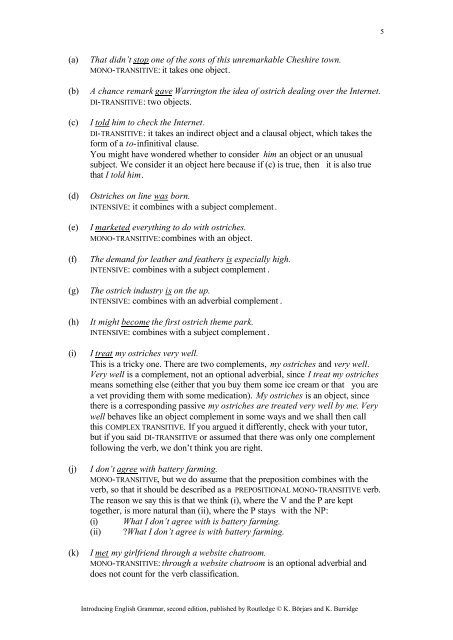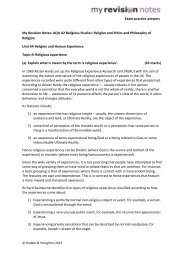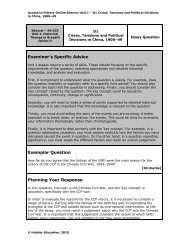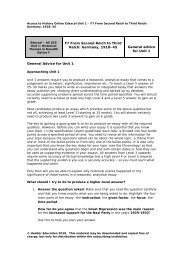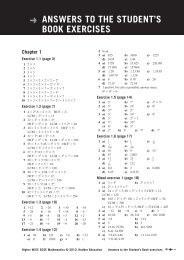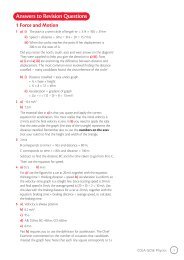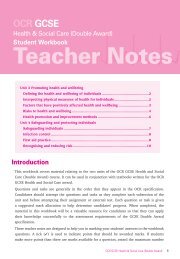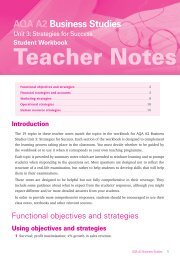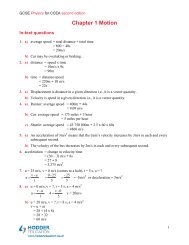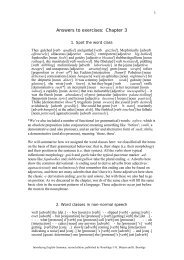You also want an ePaper? Increase the reach of your titles
YUMPU automatically turns print PDFs into web optimized ePapers that Google loves.
5(a)(b)(c)(d)(e)(f)(g)(h)(i)(j)(k)That didn’t s<strong>to</strong>p one of the sons of this unremarkable Cheshire <strong>to</strong>wn.MONO-TRANSITIVE: it takes one object.A chance remark gave Warring<strong>to</strong>n the idea of ostrich dealing over the Internet.DI-TRANSITIVE: two objects.I <strong>to</strong>ld him <strong>to</strong> check the Internet.DI-TRANSITIVE: it takes an indirect object and a clausal object, which takes theform of a <strong>to</strong>-infinitival clause.You might have wondered whether <strong>to</strong> consider him an object or an unusualsubject. We consider it an object here because if (c) is true, then it is also truethat I <strong>to</strong>ld him.Ostriches on line was born.INTENSIVE: it combines with a subject complement.I marketed everything <strong>to</strong> do with ostriches.MONO-TRANSITIVE: combines with an object.The demand for leather and feathers is especially high.INTENSIVE: combines with a subject complement .The ostrich industry is on the up.INTENSIVE: combines with an adverbial complement .It might become the first ostrich theme park.INTENSIVE: combines with a subject complement .I treat my ostriches very well.This is a tricky one. There are two complements, my ostriches and very well.Very well is a complement, not an optional adverbial, since I treat my ostrichesmeans something else (either that you buy them some ice cream or that you area vet providing them with some medication). My ostriches is an object, sincethere is a corresponding passive my ostriches are treated very well by me. Verywell behaves like an object complement in some ways and we shall then callthis COMPLEX TRANSITIVE. If you argued it differently, check with your tu<strong>to</strong>r,but if you said DI-TRANSITIVE or assumed that there was only one complementfollowing the verb, we don’t think you are right.I don’t agree with battery farming.MONO-TRANSITIVE, but we do assume that the preposition combines with theverb, so that it should be described as a PREPOSITIONAL MONO-TRANSITIVE verb.The reason we say this is that we think (i), where the V and the P are kept<strong>to</strong>gether, is more natural than (ii), where the P stays with the NP:(i) What I don’t agree with is battery farming.(ii) ?What I don’t agree is with battery farming.I met my girlfriend through a website chatroom.MONO-TRANSITIVE: through a website chatroom is an optional adverbial anddoes not count for the verb classification.Introducing English Grammar, second edition, published by Routledge © K. Börjars and K. Burridge


